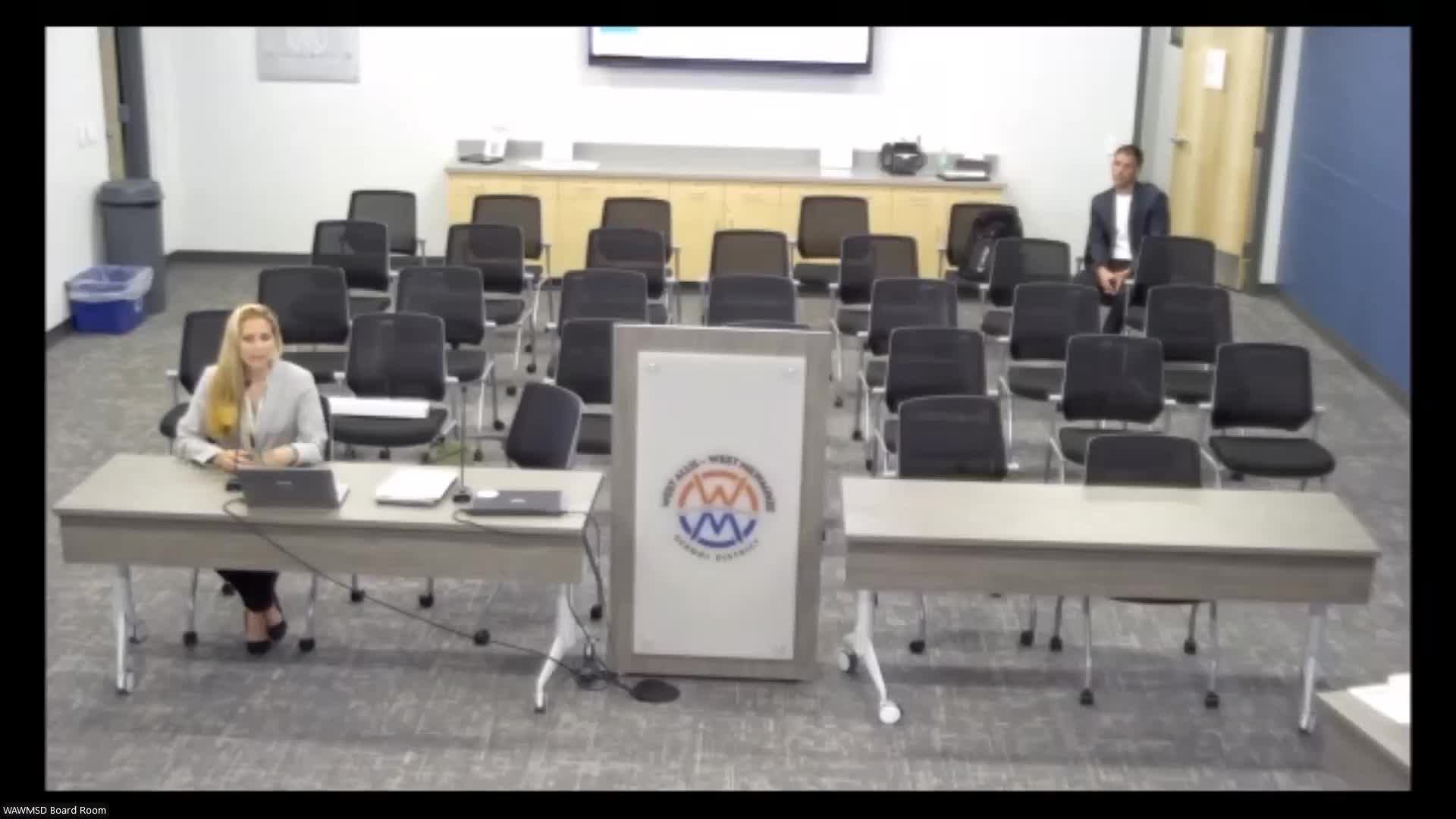Board reviews vape detectors, handheld wands and canine searches; raises costs and privacy questions
Get AI-powered insights, summaries, and transcripts
Subscribe
Summary
District safety staff demonstrated a pilot vape detector system and a handheld metal wand and summarized recent canine searches. The board discussed pilot costs (roughly $1,000–$1,600 per Halo unit plus subscription), privacy and installation logistics and asked staff for vendor comparisons, warranty details and an implementation plan.
The West Allis‑West Milwaukee School District’s safety team presented three school‑safety measures on June 9: a pilot of Halo brand vape detectors, smaller handheld metal wands used for non‑intrusive scans, and a review of past canine searches.
Marla Martin, the district’s newly hired safety coordinator, described a pilot of the Halo system installed in two restrooms at a secondary school. Halo’s devices use chemical signatures, thermal occupancy sensing and motion/sound patterning to detect vaping, smoking, aggressive incidents and certain key emergency phrases; the vendor says the units can distinguish between vaping aerosols, cigarette smoke and THC‑containing products. Halo also provides analytics and cloud reporting for administrators. Martin said the district would pilot additional placements as needed and can customize occupancy thresholds and alert routing.
Costs discussed included a rough vendor estimate of approximately $1,000 per wired unit, about $600 for installation per device depending on wiring, and an ongoing subscription fee; the presenter said the first year’s cloud access may be free but subsequent annual subscription fees can vary by contract length (vendor estimates cited roughly $100 per unit per year but staff said exact amounts depend on subscription period). Board members asked for full cost scenarios, multi‑vendor comparisons, warranty and tech‑support details, and options to protect units from tampering (guards and secure ceiling installation).
District staff separately demonstrated a hand‑held Garrett wand that detects metal components in many vaping devices; administrators said the wand is intended as a less‑intrusive, non‑contact screening tool that can be used under reasonable‑suspicion or random‑screen protocols. The board asked that any use be expressly included in the student conduct handbook and communicated to families.
Safety staff also summarized canine searches conducted in 2024–25. Dogs and handlers searched random lockers, backpacks and some parking lots; the searches located a small number of THC items, a vape device and prescription medication left in a backpack. Staff said searches were selected by administrators and handlers and advised the board to adopt a transparent, reproducible method for “random” selection (for example, numeric or floor rotations) so that families can see the process is not targeted.
No final purchase decision was made. The board directed staff to return with vendor comparisons, cost scenarios (including subscription and installation), warranty terms and a written policy that defines when and how wand scans and canine searches would be used, and how parents and students will be notified.
